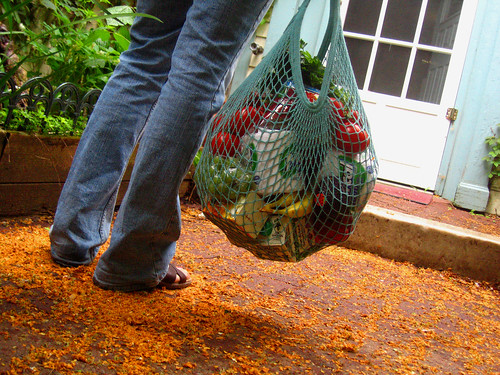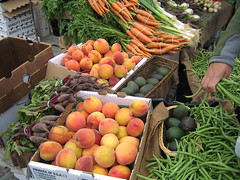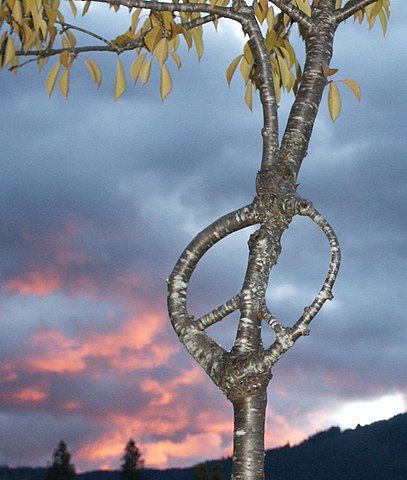
- Blogs (Apr 09, 2020)
- News (May 30, 2023)
- Organizations (Nov 04, 2023)
- People (Nov 03, 2023)
- Projects (Jun 24, 2019)
You can log-in or register for a user account here.

Topic: Seeding Ground
The new items published under this topic are as follows. "WCI student isolates microbe that lunches on plastic bags" (via The Record)
"WCI student isolates microbe that lunches on plastic bags" (via The Record)Synopsis: Daniel Burd's stew contains ground-up plastic in a mix of landfill dirt, yeast and tap water. After experimenting with different temperatures and configurations, he isolated the microbial remediators. He discovered that it biodegrades over 40% of the weight of plastic bags in less than three months. The only waste is water and a bit of carbon dioxide.
"This is a huge, huge step forward... We're using nature to solve a man-made problem."
Daniel Burd, 16-yr-old junior, Waterloo Collegiate Institute & Canada-Wide Science Fair winner
of packaged goods and non-reusable baggage remains a high priority.

"String is king" by fixlr (via Flickr)
(CC) Attribution-Noncommercial-Share Alike 2.0 Generic
How to help limit the ever-growing patch of garbage floating in the Pacific Ocean:
• Limit use of plastics when possible.
• Use a reusable bag when shopping.
• Take your trash with you when you leave the beach.
• Make sure trash bins are securely closed.

 Holistic Options for Planet Earth Sustainability
Holistic Options for Planet Earth Sustainabilityis the only ecological design conference
developed and managed by students...
working to promote the deeper understanding and
broader application of sustainable design principles.
"We live on a water planet.
Its complex properties have been inspirational
for science and art since time immemorial.
As water sculpts our physical landscape,
it manifests energy to form civilizations or erode them.
Its power is shadowed by continuing degradation
and scarcity throughout the world.
As designers, we are called to a confluence to
understand our interdependence and connection to water."

Descrption: Lena River Delta (Visible Earth v1 ID: 18024) Public Domain
Credit: Image provided by the USGS EROS Data Center Satellite Systems Branch.
This image was acquired by Landsat 7’s Enhanced Thematic Mapper plus (ETM+)
 Community Supported Agriculture, or CSA, is aimed at both increasing the quality of food and the quality of care given the land, plants and animals ¬ń while substantially reducing potential food losses and financial risks for the producers. Fairview Gardens was the second farm on the West Coast to offer a CSA.
Community Supported Agriculture, or CSA, is aimed at both increasing the quality of food and the quality of care given the land, plants and animals ¬ń while substantially reducing potential food losses and financial risks for the producers. Fairview Gardens was the second farm on the West Coast to offer a CSA.
The Center for Urban Agriculture at Fairview Gardens is a California non-profit organization that was established in 1997 to preserve and operate Fairview Gardens. Founded in 1895, the historic Fairview Gardens is considered by some to be the oldest organic farm in southern California, and is now preserved in perpetuity through an agricultural conservation easement.
The Center's mission is to preserve the agricultural heritage of this 100-year-old farm; provide the local community with fresh, chemical-free fruits and vegetables; demonstrate the economic viability of sustainable agricultural methods for small farm operations; research and interpret the connections between food, land, and community well being; and nurture the human spirit through educational programs and public outreach both on and off the farm.
Fairview Gardens offers a "hands on" apprenticeship program, in which apprentices work side-by-side with our field and marketing staff to learn the art and craft of farming through direct experience and observation.
Apprentices are encouraged to keep a journal of their observations and questions and meet regularly with the farm management staff for more formal instruction and guidance. The classes, workshops and other educational programs offered at the farm are available to apprentices at no charge. While the demands of the farm are our first priority, we direct apprentices towards materials, projects, and visits that can round out their experience here.
Certified Organic by Guaranteed Organic Certification Agency, 760-731-0496
"It maybe when we no longer know what to do, We have come to our real work, And that when we no longer know which way to go, We have begun our real journey."
--Wendell Berry, philosopher, poet, essayist, farmer, novelist, and social activist.
 From Toby Hemmingway, "Of all the various incarnations of ecological design, sustainable living, holistic systems management, and related big-picture ideas for living on a small planet, the one that grabs me is permaculture ...seem so complete, self-contained, and naturally integrated...combines a set of coherent and interlinked principles, an energy- and resource-conserving attention to relative placement of elements, and... a set of ethical guidelines. It is also amply broad-reaching to appeal to a discipline-roaming generalist like me." Click Read More...
From Toby Hemmingway, "Of all the various incarnations of ecological design, sustainable living, holistic systems management, and related big-picture ideas for living on a small planet, the one that grabs me is permaculture ...seem so complete, self-contained, and naturally integrated...combines a set of coherent and interlinked principles, an energy- and resource-conserving attention to relative placement of elements, and... a set of ethical guidelines. It is also amply broad-reaching to appeal to a discipline-roaming generalist like me." Click Read More...
 How much oxygen did your furniture produce today? "Fill and cover with dirt, spinkle with grass seeds and water . . . This item can not be gift wrapped. As a bonus, you don't have to worry about bringing the couch inside for the winter...." Take an idea and organicize it!
How much oxygen did your furniture produce today? "Fill and cover with dirt, spinkle with grass seeds and water . . . This item can not be gift wrapped. As a bonus, you don't have to worry about bringing the couch inside for the winter...." Take an idea and organicize it!
 Edward Scissorhands was lauded for his skill in the art of topiary. Arborsculpture is an art form utilizing the live tree trunk as the medium. By grafting, bending, framing and multiple planting. Imaginify growing useful, solid, flowering, fruiting, seasonally changing kinetic works of art and architecture.
Edward Scissorhands was lauded for his skill in the art of topiary. Arborsculpture is an art form utilizing the live tree trunk as the medium. By grafting, bending, framing and multiple planting. Imaginify growing useful, solid, flowering, fruiting, seasonally changing kinetic works of art and architecture.the ultimate branch of topiary with the potential to save the environment.
There are other words and terms that are used to describe this art.
Pleaching, grafting, permaculture, tree trunk topiary, botanical art,
botanical architecture, biotechture, living art, visionary art, and really weird."
- Richard Reames, Arborsculptor, Blog


Peace Web by Richard Reames (CC Attribution 2.5) ||| Two Leg Tree by Axel Erlandson (GNU License)
 WE NEED A FORM OF RENEWABLE ENERGY THAT DOES NOT STARVE PEOPLE...
WE NEED A FORM OF RENEWABLE ENERGY THAT DOES NOT STARVE PEOPLE...The Cost of Corn Ethanol
Starving the People To Feed the Cars
This seems to be one of the only forms that doesn't take food off people's plates.
Wired reports, "Biodiesel fueling stations are sprouting like weeds across America, where production of the alternative fuel rose 66 percent in 2003." The Physics Department at the University of New Hampshire has an article on "Widescale biodiesel production from algae." "With alternate fuel becoming a fairly hot trend in recent months, some academics may have applied their theoretical know-how to give us a practical solution. They offer up the idea that certain types of algae are well-suited to biodiesel production as they are nearly 50 percent oil."
 Wired magazine has a great article in their May 2004 issue on "gene science [that] is Earth-friendly and all-natural." So...genetic engineering our food may be not the best course of action afterall. Thank goodness! For example, savory, high-yield fruit (that) would ripen on the vine and remain firm in transit...Researchers are beginning to understand plants so precisely that they no longer need transgenics to achieve traits like drought resistance, durability, or increased nutritional value."
Wired magazine has a great article in their May 2004 issue on "gene science [that] is Earth-friendly and all-natural." So...genetic engineering our food may be not the best course of action afterall. Thank goodness! For example, savory, high-yield fruit (that) would ripen on the vine and remain firm in transit...Researchers are beginning to understand plants so precisely that they no longer need transgenics to achieve traits like drought resistance, durability, or increased nutritional value."
- Apache HTTP Server
- Audacity [audio]
- Blender [3D suite]
- EMS Resources
- Firefox [browser]
- FreeCAD [modeler]
- GIMP.org [graphics]
- Inkscape [vector]
- LibreOffice
- Linux Kernel
- Mattermost [team]
- MediaWiki
- Moodle [LMS]
- Mozilla Hubs
- NetNewsWire
- Nightingale [music]
- OBS Studio
- QGIS [Geo-Info-Sys]
- Thunderbird [email]
- Thunderbird Lightning
- VLC [VideoLan]
- Wordpress [CMS]
- xiph Vorbis [ogg]
- XMPP [comm]
INTERNET ARCHIVE
WIKIMEDIA FOUNDATION
OPEN COURSEWARE
- Archive Educational
- Commons
- EdX
- Encyclopedia of Life
- HarvardX
- Harvard U
- CancerCommons
- Identity Mashup
- Merlot
- MIT OpenCourseware
- MITX
- Neuropathy Commons
- Northwestern U
- OpenCulture
- Open Edu Global
- Open Journal Systems
- OpenStax at Rice
- Open U OER
- Oregon State U
- SchoolForge
- Stanford U
- Tree of Life (glossary)
- U of Michigan
- U of Oxford
- Wikiversity
- Yale Open Courses
• Deep Learning
• Machine Learning
• Reinforcement Learning
• Artificial Intelligence
OPEN FORGES
OPEN METAVERSE
• Blender [3D Suite]
• Firestorm Viewer
• GitHub
• Libre3D
• Metaverse Project
• Mozilla Hubs
• NIH 3D Print Exchange
• OpenKinect
• OpenNI2
• OpenSim
• OpenSourceVR
• OpenWonderland
• PlayCanvas
• Sirikata
• Sketchfab
• Thingiverse
• 3D Warehouse
• Unity 3D
• WebGL (Moz)
• WebXR API (Moz)
• Yeggi
• YouMagine
- Arxiv at Cornell
- Arxiv Computer Research
- Arxiv Mathematics
- Arxiv NonLinear Sciences
- Arxiv Physics
- Arxiv Quantitative Biology
- Berkeley Electronic Press
- Free Legal Resources
- MediArXiv
- Public Library of Science (PLoS)
- PLoS ONE
- PLoS Biology
- PLoS Complex Systems
- PLoS CompBio
- PLoS Genetics
- PLoS Medicine
- Science Commons
- Smithsonian
- Alternative Freedom
- Brothers Chudnovsky
- Century of Self
- Conundrum
- Design-e2
- Digital Nation
- Einstein's Big Idea
- The Elegant Universe
- Evolution
- The Facebook Dilemma
- Fritjof Capra
- Generation Like
- The Grey Video
- Growing Up Online
- How Art Made the World
- In the Age of AI
- Last Child in the Woods?
- Life Incorporated
- Merchants of Cool
- Mirror Neurons
- OurMedia
- OS Media
- The Persuaders
- Plastic Wars
- Present Shock
- RecentChangesCamp06
- Revolution OS
- Who Owns Culture?
- Definition
- MP3 7.2MB
- More A/V
- Stanford Talk
Games- Agility
- Drawing
- OS Games
- Spelling
Media Ecology- Definition
- Tetrad of Effects
Optics- Dymaxion Map
- Hubble Telescope
- James Web Telescope
- Map - Territory
- Op Art
- Virtual Globe
- Visible Earth
Systems Science- 67th Proceedings
- 66th Proceedings
- 65th Proceedings
- 64th Proceedings
- 63rd Proceedings
- 62nd Proceedings
- 61st Proceedings
- 60th Proceedings
- 59th Proceedings
- 58th Proceedings
- 57th Proceedings
- 56th Proceedings
- 55th Proceedings
- 54th Proceedings
- 53rd Proceedings
- 52nd Proceedings
- 51st Proceedings
- 50th Proceedings
- Retrospective 12
- Retrospective 11
- Retrospective 10
- Retrospective 09
- Retrospective 08
- Retrospective 07
- Retrospective 06





